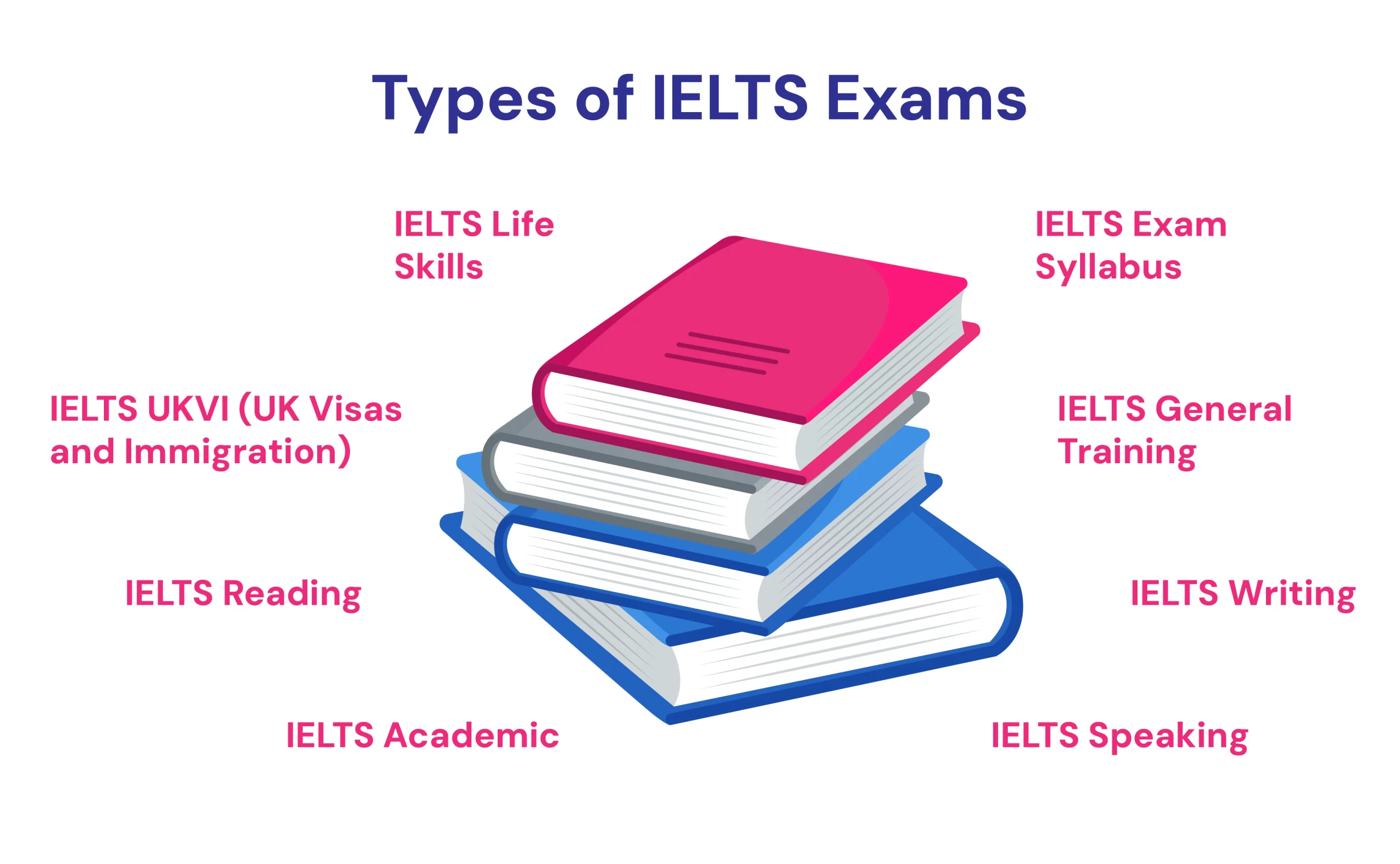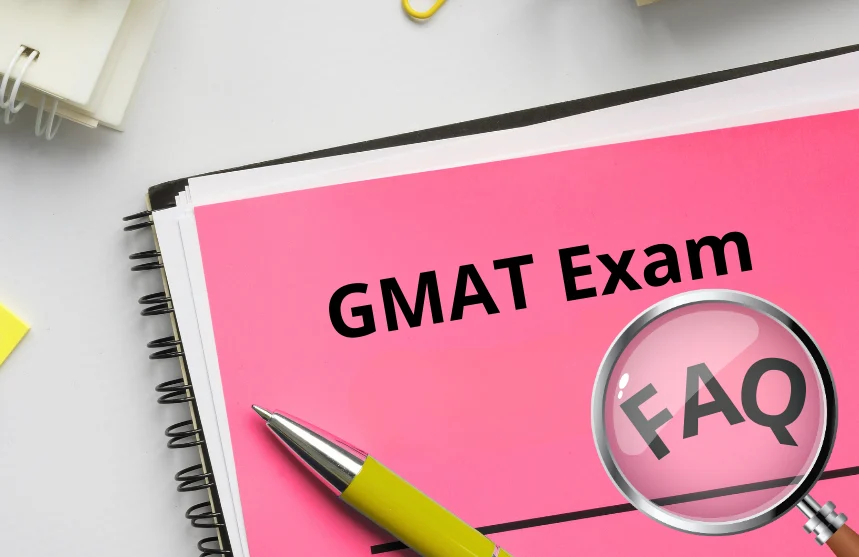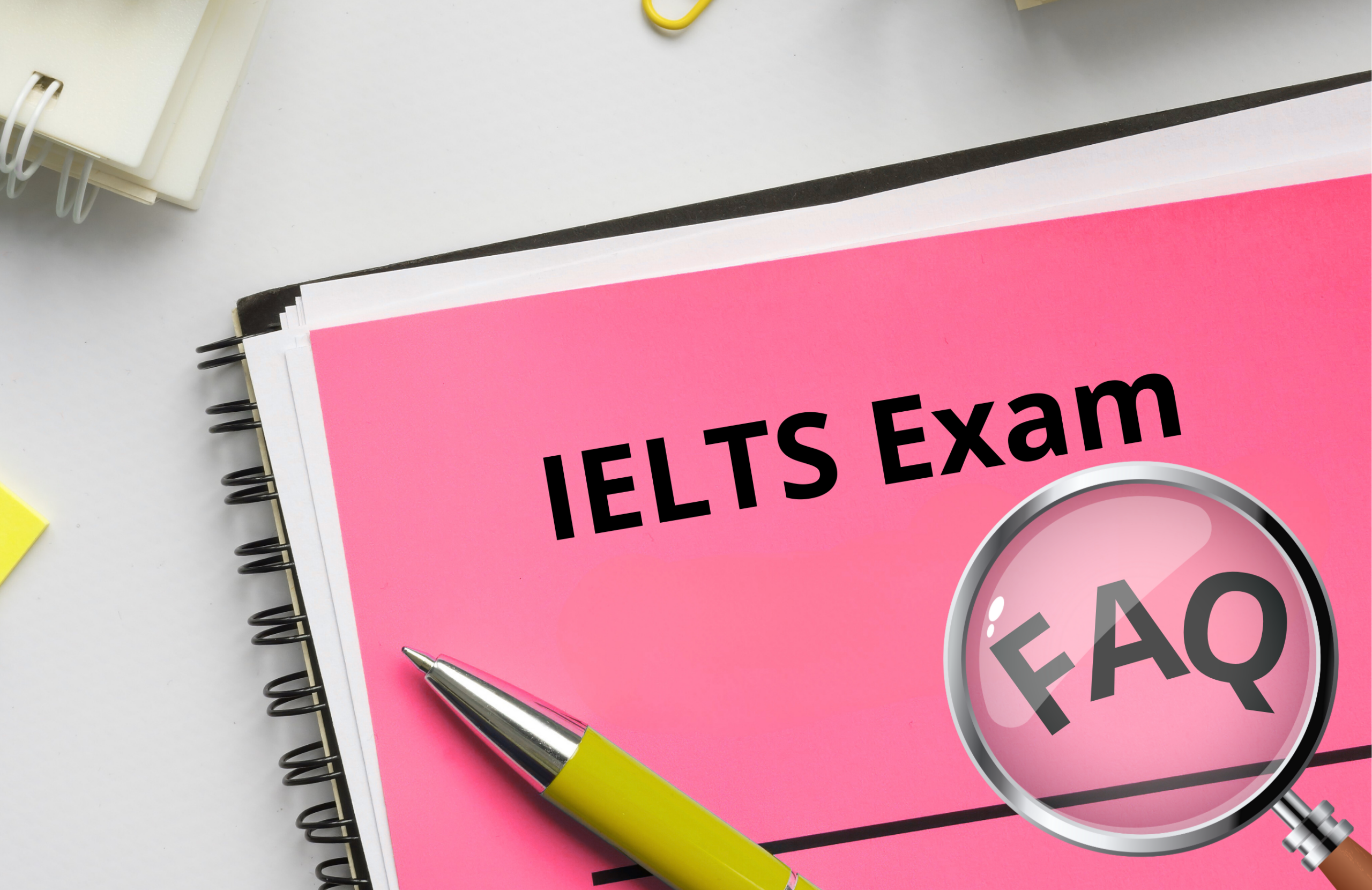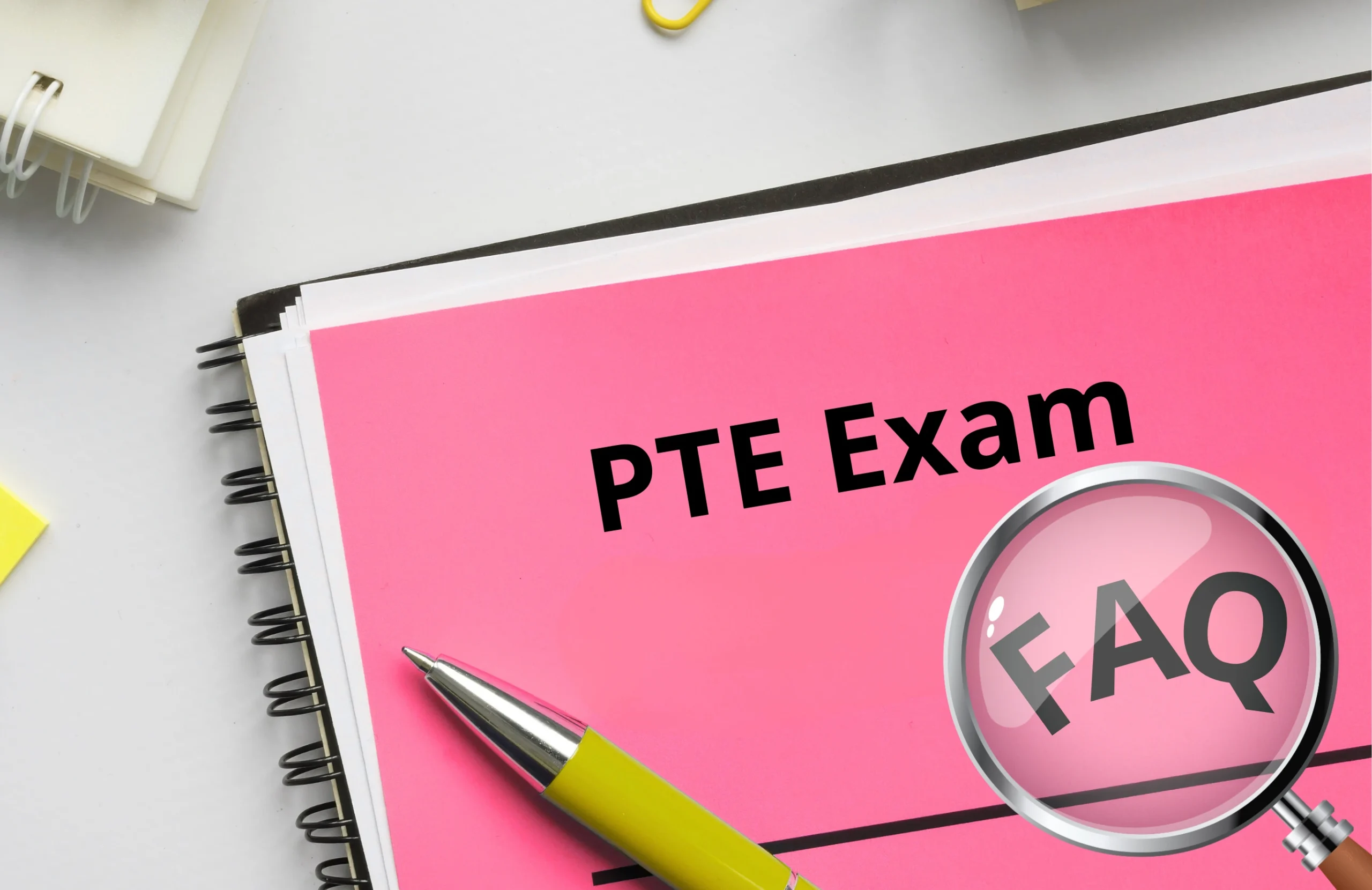TOEFL Exam Syllabus: A Complete Guide for Test-Takers
IELTS Exam: Syllabus, Intake, Dates of Registration and More

One of the most popular English proficiency tests accepted worldwide is the International English Language Testing System (IELTS). It is a point of entry for millions of students and professionals who wish to study, work, or settle in English-speaking countries. Whether you are applying to a higher education institution, for immigration, or for any other professional opportunity, in many cases, you will be required to take the IELTS Exam.
In this blog, we will discuss all you need to know about the exam syllabus, exam intake dates, registration dates, and provide you with a list of countries that accept IELTS Scores. By the end, you will have a detailed roadmap to plan and prepare strategically for your IELTS exam.
What is the IELTS Exam?
The IELTS exam is a globally recognised English Language Proficiency Test designed to assess a candidate’s ability to use English effectively. IELTS is a British Council-designed assessment administered by Cambridge Assessment English and IDP: IELTS Australia.
The test evaluates the four major language skills, namely Listening, Reading, Writing, and Speaking. It has two variants: IELTS Academic and IELTS General Training, which candidates may undertake depending on their intentions to study abroad, migrate, or pursue professional opportunities.
IELTS Academic: This is appropriate for students intending to study a higher education course at a university or register professionally.
IELTS General Training: This is suitable for candidates with work experience, training programmes, or migration plans to English-speaking countries.
Why is IELTS Important?
International Acceptance – IELTS is recognised by more than 11,000 organisations worldwide, including universities, immigration departments, and multinational companies.
Visa and Immigration – IELTS is a compulsory Requirement for Student Visas, skilled worker visas, and permanent residence applications in countries such as the UK, Canada, Australia, and New Zealand.
Flexibility – IELTS is conducted on multiple test dates throughout the year, and candidates can retake the test if necessary.
Types of IELTS Exams

The IELTS test comes in four variants, and the one you need depends on your goal, whether it is higher education, migration, or visa purposes.
IELTS Academic is taken by students who wish to attend universities or professional institutions in English-speaking nations. The test assesses your ability to work with academic English and tasks related to academic environments in university or professional settings.
IELTS General Training is suitable for candidates migrating to the UK, Canada, Australia, or New Zealand. It is also required for work experience, secondary education, or vocational training. The test focuses on daily communication skills needed in social and workplace contexts.
IELTS UKVI (UK Visas and Immigration) is a variation of the IELTS test accepted by the UK government as a visa and immigration requirement. It is available in both Academic and General Training formats but must be taken at centres recognised by UKVI, making it mandatory for certain UK visa applicants.
IELTS Life Skills is aimed at individuals applying for UK family visas, spouse visas, or citizenship. Unlike other tests, it only assesses Speaking and Listening skills to determine how well you can communicate in real-life scenarios.
IELTS Exam Syllabus The IELTS exam syllabus is structured in such a way that it evaluates the general English proficiency of a candidate in the following four main skills: Listening, Reading, Writing, and Speaking. The sections have a certain pattern and require a particular approach to be effective.
IELTS Listening also assesses your ability to hear and comprehend spoken English under varying conditions. Four recordings of native English speakers are used during the test, consisting of conversations, discussions, and monologues. You will be asked 40 questions that will evaluate your understanding of main ideas, recognition of opinions, and the logical flow of arguments. This section takes 30 minutes, with an additional 10 minutes allowed to transfer answers in the paper-based test.
IELTS Reading evaluates the reading and understanding of texts. The passages in the Academic version are taken from journals, research papers, magazines, and books, as opposed to the General Training version. You will have 60 minutes to answer 40 questions, testing skills such as skimming, scanning, identifying main ideas, and logical argumentation.
IELTS Writing tests your ability to convey information successfully and construct arguments in written English. Task 1 in the Academic test involves the description of a graph, chart, or diagram, whereas in the General Training test you are required to write a letter. Task 2 is similar in both versions and requires writing an essay on a specified topic with a minimum of 250 words. This section lasts 60 minutes and evaluates task achievement, coherence, vocabulary, and grammar.
IELTS Speaking tests your spoken English through an interview with an examiner. It is divided into three sections: an introduction and general questions about yourself; a cue card task, in which you speak for two minutes on a given topic; and a discussion, in which you answer more challenging questions related to the topic. The entire section lasts 11–14 minutes and assesses fluency, pronunciation, vocabulary, and grammatical accuracy.
IELTS Exam Timetable and Application
The IELTS exam can be taken several times a year, allowing candidates the flexibility to choose a suitable date. Registration is a straightforward process and can be completed online by following these steps:
Step 1: Access the IELTS official site
The registration process begins on the official IELTS website or the registration portal of an authorised test centre.
Step 2: Create an account
Register using personal information such as your full name, date of birth, email address, and phone number. This will create your IELTS profile.
Step 3: Select your type and format of test
Choose either IELTS Academic or IELTS General Training, then select between the computer-based or paper-based format according to your preference.
Step 4: Choose date and place of the test
Browse the available dates and test centres, and select the one that is most convenient and aligns with your university or visa application deadlines.
Step 5: Complete the application form
Enter all necessary information, including personal and identification details, as well as your academic or professional background. Ensure the details match your passport.
Step 6: Submit identification documents
Upload a clear scanned copy of your valid passport, which is the primary identification document required on the day of the exam.
Step 7: Pay the exam fee
Complete the payment using a debit/credit card, net banking, or any other accepted method.
Step 8: Receive confirmation
Once registration and payment are successful, you will receive a confirmation email containing the test date, time, and venue. Keep this safe, as you will need it on the test day.
Why Choose TestPrep for IELTS Preparation
Comprehensive Curriculum – Encompasses all four IELTS modules (Listening, Reading, Writing, Speaking) and follows the most recent exam format.
Comprehensive Practice Resources – Section-specific practice tests, full-length mock exams, and lesson plans on effective preparation strategies.
Progress Tracking – Live analytics and skill-based score predictions to understand existing strengths and weaknesses.
Speaking & Writing Feedback – AI-based scoring and teacher assistance to enhance results in key areas.
Flexible Learning – Six months of online portal and mobile application access to allow candidates to learn at their own pace.
Professional Advice – Supported by the experience of MetaApply IE in international study preparation, including university admissions and guidance on visa applications.
Conclusion
The IELTS test is your key to studying, working, or migrating to English-speaking countries. By having a clear understanding of the syllabus, exam format, intake, registration procedure, and the countries that accept IELTS, you will be able to organise your preparation accordingly and achieve the band score you require. Exam preparation platforms such as TestPrep may assist in simplifying your preparation process with organised lessons, trial tests, and personalised feedback, ensuring you are fully prepared for the exam.
For candidates intending to Study Abroad, platforms such as MetaApply IE simplify the entire process, from selecting the right university to preparing for the IELTS exam, allowing you to pursue your ambitions confidently.
Frequently Asked Questions
IELTS scores are valid for 2 years from the date of the exam. You may need to retake the test if your scores expire before applying to a university or immigration programme.
Yes, as of recent updates, candidates can retake a single module (Listening, Reading, Writing, or Speaking) without reappearing for the full test. This helps improve your overall band efficiently.
IELTS is accepted in over 140 countries, including the UK, Canada, Australia, New Zealand, the USA, Ireland, Germany, France, Singapore, and Malaysia. Most universities, employers, and immigration authorities recognise it as proof of English proficiency.


















































